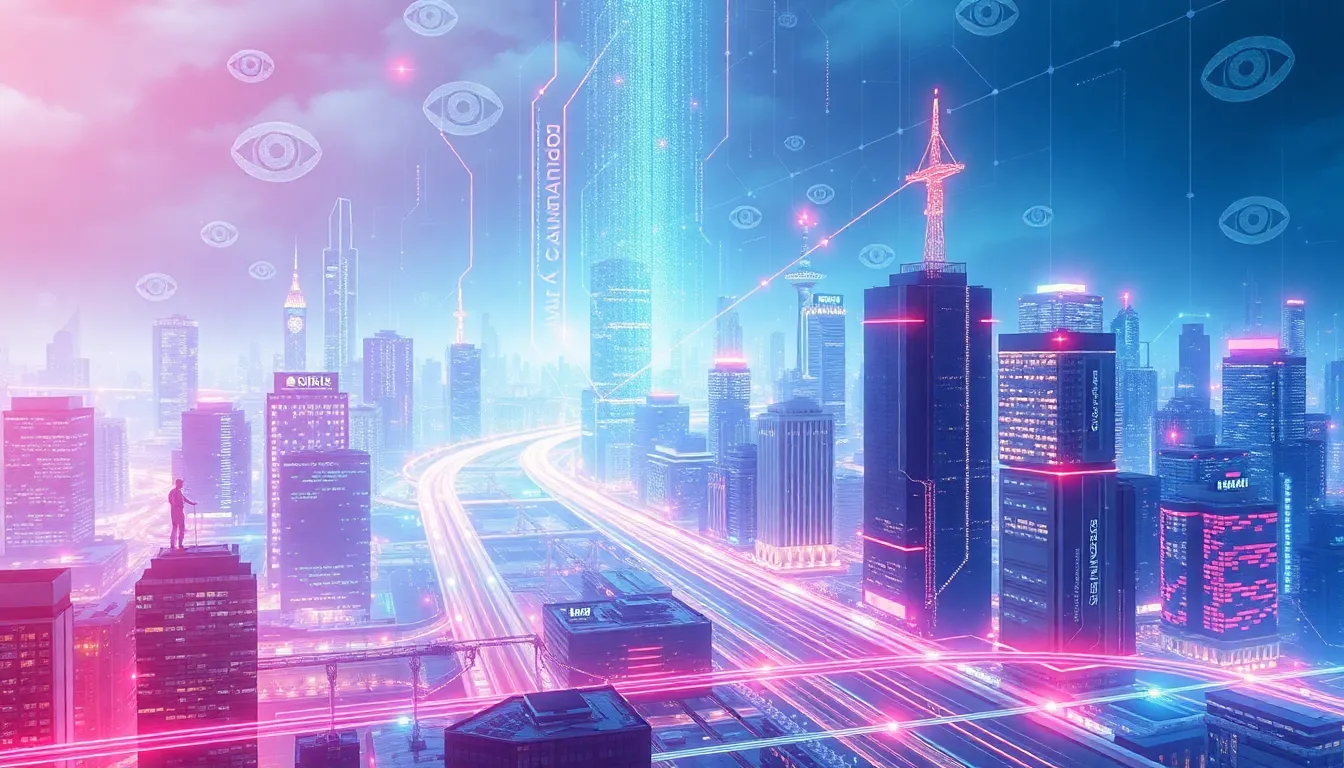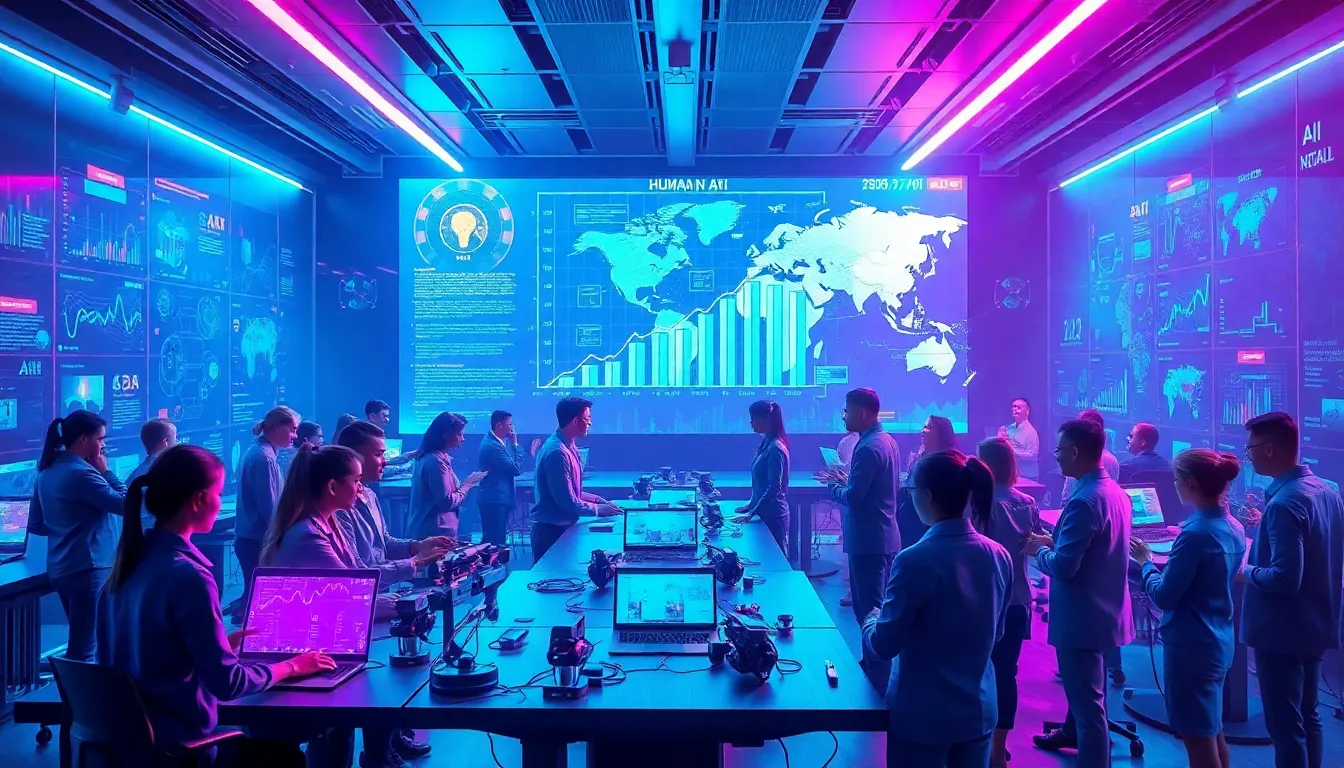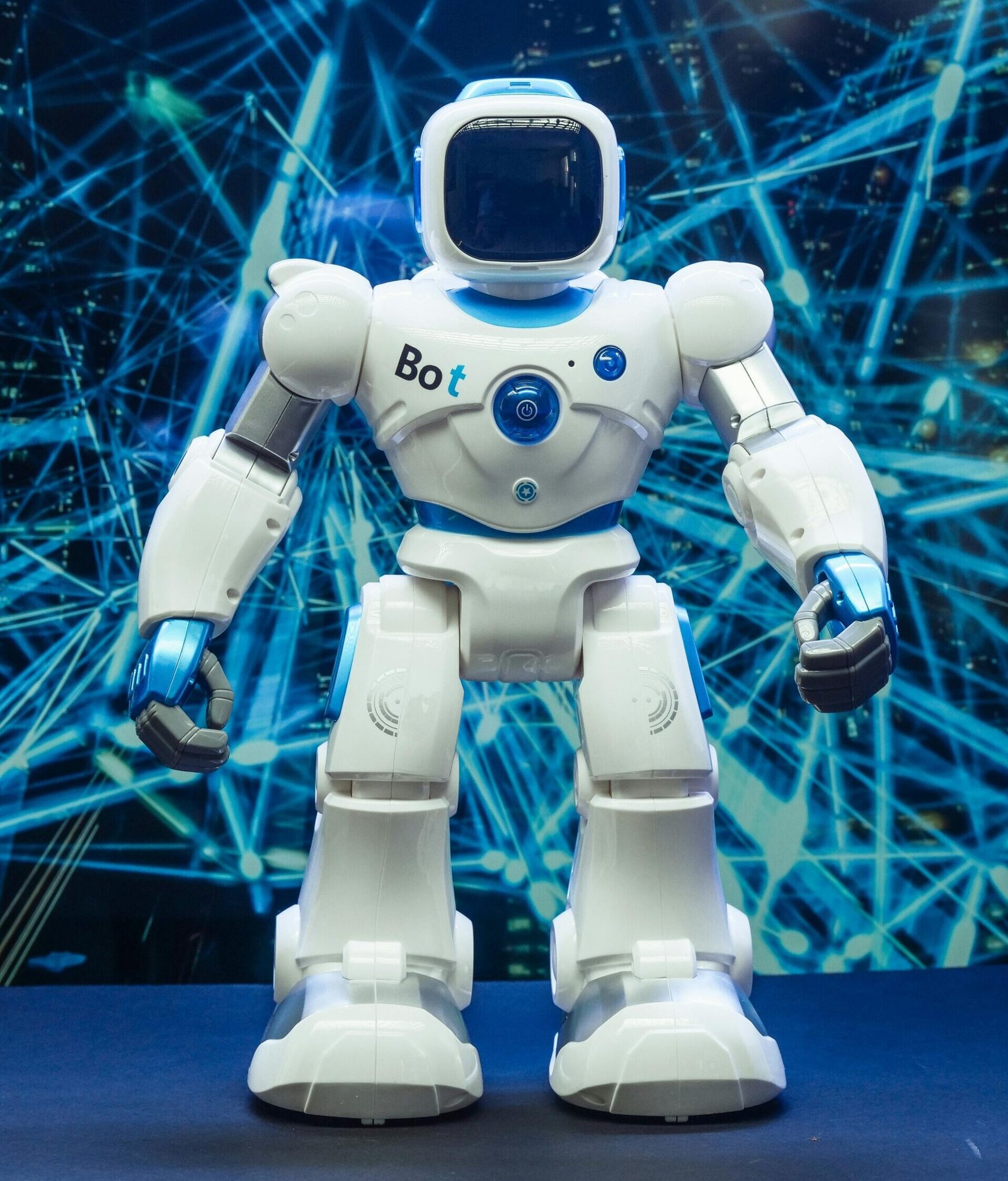AI in Creative and Business Fields is rapidly transforming industries, accelerating efficiency and unlocking unprecedented innovation. This powerful technology is redefining everything from content generation to core business operations, yielding substantial productivity gains and significant returns on investment.
Key Implications
- Accelerated Efficiency and ROI: AI dramatically boosts productivity in creative content generation, reducing draft times by up to 40%, and significantly enhances business operations through personalized campaigns that yield 15-20% ROI and customer service cost reductions of 30%.
- Booming Market Growth: The global AI market is projected to reach $407 billion by 2027, driven by increasing enterprise adoption, with 35% of companies actively using AI and an additional 42% exploring its potential applications.
- Critical Talent Gap: A significant barrier to effective AI adoption is the lack of skilled talent, with 42% of businesses citing this as a major impediment to integrating AI technologies.
- Ethical Deployment: Concerns about ethical issues, including data privacy and algorithmic bias, are prevalent among 63% of leaders, emphasizing the critical need for robust ethical frameworks in AI implementation.
- Workforce Reshaping: AI is fundamentally transforming the employment landscape, potentially displacing 85 million jobs by 2025 while simultaneously creating an estimated 97 million new roles centered on human-AI collaboration and oversight.

Creativity Accelerated: AI Slashes Draft Times by 40% While Boosting Business ROI by 20%
Artificial Intelligence is no longer just a futuristic concept; it is a tangible force actively reshaping both creative content generation and core business operations. This powerful technology is driving substantial efficiency gains and fostering profound innovation. From speeding up design processes to enhancing customer engagement, AI tools are delivering measurable benefits. These advantages translate directly into improved output and significant returns on investment across various sectors.
The rapid advancement of AI has moved it from experimental labs into everyday workflows. Businesses and creatives alike are harnessing its capabilities to achieve previously unimaginable levels of productivity. This widespread adoption underscores AI’s critical role in modern enterprises. Its transformative potential is evident in its ability to streamline complex tasks and unlock new avenues for growth and development.
Transforming Creative Content Generation with AI
The landscape of creative content generation is undergoing a profound shift, largely driven by AI. A remarkable 75% of marketers predict AI will significantly impact content creation, signaling a transformative era. This impact extends to various aspects of content development, from initial concept to final production. AI tools are becoming indispensable assistants for generating diverse media.
Already, 50% of creative professionals have experimented with AI tools, exploring new avenues for expression and efficiency. These professionals leverage AI for tasks like generating initial drafts, brainstorming ideas, and automating repetitive design elements. AI systems can quickly produce variations of designs, write marketing copy, or even compose basic musical scores. This frees human creatives to focus on higher-level strategic and conceptual work.
One of the most immediate benefits is the acceleration of the production cycle. AI can achieve an astounding up to a 40% reduction in initial content draft creation time. This efficiency gain allows creative teams to iterate faster, explore more options, and deliver projects on tighter deadlines. For instance, an AI tool can generate multiple headlines or social media posts in minutes, which would traditionally take hours for a human writer. Exploring powerful AI models for creative writing can further enhance these capabilities, as detailed in discussions around Gemini vs. ChatGPT for creative storytelling.
This acceleration is not about replacing human creativity but augmenting it. AI acts as a co-pilot, handling the more mechanical and time-consuming aspects of content generation. This collaborative approach enhances overall output quality and volume. Creative professionals can dedicate more time to refinement, conceptual development, and adding unique human touches that resonate with audiences. The synergy between human ingenuity and AI efficiency leads to superior results.
Boosting Business Operations and ROI with AI
Beyond creative fields, AI in Creative and Business Fields delivers measurable benefits across core business functions. Its integration into operations leads to significant improvements in efficiency, customer engagement, and ultimately, profitability. AI tools are proving instrumental in optimizing various aspects of business, from marketing to customer service and sales.
Personalized AI campaigns are a prime example of this impact, yielding an impressive 15% to 20% average Return on Investment (ROI). AI algorithms analyze vast amounts of customer data to deliver highly targeted messages and product recommendations. This level of personalization resonates deeply with consumers, leading to increased conversion rates and stronger brand loyalty. Businesses can understand individual preferences and buying behaviors more accurately. This insight enables them to tailor every interaction, making customers feel truly valued. Enhancing customer engagement with personalized content, such as a personalized AI news feed, can further amplify these results.
Customer service operations also see dramatic improvements with AI integration. AI-powered chatbots now manage 80% of routine customer inquiries, drastically improving response times and availability. These chatbots provide instant answers to frequently asked questions, resolve basic issues, and guide customers through processes 24/7. This automation significantly enhances the customer experience by offering immediate support without human intervention.
The widespread use of AI in customer service also translates into substantial cost savings. This automation results in an estimated 30% reduction in customer service operational costs. By offloading routine tasks to AI, businesses can optimize their human resources, allowing agents to focus on complex, high-value interactions. This strategic reallocation of staff leads to more efficient resource utilization and higher job satisfaction for human agents. The overall service quality improves while operational expenses decrease.
Furthermore, businesses are seeing a substantial 10% to 15% boost in sales productivity by leveraging AI. AI tools assist sales teams in various ways, including lead qualification, predictive analytics, and personalized outreach. AI can identify the most promising leads by analyzing historical data and predicting customer behavior. It can also automate follow-up emails and schedule meetings, freeing up sales professionals to concentrate on closing deals. This data-driven approach streamlines the sales funnel, making the process more efficient and effective from initial contact to conversion.

Global AI Market Explodes to $407 Billion by 2027, Yet 42% of Businesses Grapple with Skill Gaps
The global artificial intelligence (AI) market is experiencing unprecedented expansion, solidifying AI’s role as a strategic imperative for businesses worldwide. Projections indicate the market will surge to $407 billion by 2027, demonstrating a remarkable Compound Annual Growth Rate (CAGR) of 36.8% from 2023. This explosive growth underscores the transformative potential AI holds across various sectors, from streamlining operations to fostering innovation in the creative landscape.
Enterprise adoption of AI technologies is steadily increasing, reflecting a growing recognition of its competitive advantages. Currently, 35% of companies report actively using AI in their operations, while an additional 42% are exploring its potential applications. This broad engagement highlights how AI is reshaping industries and driving efficiency across the board. The integration of AI in creative and business fields is particularly noteworthy, as organizations seek to automate processes, personalize customer experiences, and unlock new avenues for content generation and decision-making.
Addressing the Critical Talent Gap in AI Adoption
Despite the undeniable momentum, the path to full AI integration is challenged by several critical factors, primarily a significant lack of skilled talent. A substantial 42% of businesses cite a lack of skilled talent as a major barrier to adopting AI technologies effectively. This talent gap can impede progress, slow innovation, and prevent companies from fully leveraging their AI investments.
The scarcity of experts in areas such as machine learning, data science, and AI ethics means that many organizations struggle to develop, deploy, and manage AI systems. Companies must proactively invest in training existing staff or recruit specialized talent to overcome this hurdle. Bridging this skill deficit is not just about technical expertise; it also involves understanding how to strategically apply AI in creative and business fields to achieve specific organizational goals and maintain a competitive edge.
Beyond talent acquisition, ongoing ethical concerns present another significant challenge to widespread AI integration. A striking 63% of leaders express worry about ethical issues, including data privacy and algorithmic bias. These concerns are not merely theoretical; they can lead to real-world consequences, eroding consumer trust, prompting regulatory scrutiny, and even resulting in costly legal battles.
Businesses must therefore prioritize the development and implementation of robust ethical frameworks for their AI initiatives. This includes ensuring transparency in data collection and algorithm design, establishing fair decision-making processes, and protecting user privacy. Proactively addressing these ethical dimensions is crucial for building public confidence and ensuring that AI serves as a force for good. Neglecting these issues risks undermining the very benefits AI promises, especially when AI systems interact directly with sensitive user data or influence critical decisions within business operations.
The Rise of Generative AI and Future Growth Potential
A key driver of future market growth is the burgeoning field of generative AI. This specific segment of the AI market is projected to reach an impressive $108.7 billion by 2030. Generative AI models, capable of producing text, images, code, and other media, are revolutionizing creative industries and offering unparalleled opportunities for innovation in areas like content creation, product design, and customer service.
The applications of generative AI are expanding rapidly, making it a pivotal area for investment and development. Its ability to automate and augment creative tasks means that businesses can achieve new levels of efficiency and personalization. From automating marketing copy to generating realistic virtual environments, generative AI is poised to significantly impact how organizations operate and interact with their audiences. Companies that strategically adopt these advanced tools will be better positioned to capitalize on the dynamic future of AI innovations.
To fully capitalize on the future growth potential of AI, businesses must adopt a holistic approach. This includes not only investing in cutting-edge technology but also fostering a culture that supports continuous learning, ethical responsibility, and strategic implementation. The challenges of talent scarcity and ethical considerations are surmountable with proactive planning and commitment. By addressing these factors head-on, organizations can ensure they remain at the forefront of the AI revolution and harness its power for sustainable success and societal benefit.

60% of Leaders See 10%+ Productivity Boosts as AI Creates 97 Million New Roles
Artificial intelligence (AI) profoundly reshapes the global workforce. It significantly enhances productivity across organizations. This transformation also critically redefines job roles. This dynamic shift necessitates a strategic focus on upskilling and reskilling initiatives. These programs prepare the existing workforce for evolving demands. The influence of AI in Creative and Business Fields is particularly profound, driving both innovation and efficiency.
Recent data underscores AI’s immediate impact. A substantial 60% of executives report AI has improved productivity by over 10% within their organizations. This highlights AI’s powerful capacity to streamline operations. It also automates repetitive tasks. Such advancements free up human capital for more complex, strategic endeavors across various industries.
The Shifting Landscape of Employment
The advent of automation and AI introduces a dual effect on employment figures. Projections indicate a significant displacement of jobs. Approximately 85 million jobs may be displaced by 2025 due to automation and AI. This trend primarily affects roles centered on routine and predictable tasks. These are often the first to be automated by intelligent systems. The scale of this displacement calls for proactive planning by businesses and governments.
However, the outlook is not solely about job losses. AI simultaneously fosters the creation of new opportunities. An estimated 97 million new roles leveraging AI-driven insights and human-AI collaboration are expected to emerge by 2025. These emerging positions often focus on areas like AI ethics, data interpretation, system management, and creative problem-solving. Such roles emphasize unique human capabilities that complement AI functionalities.
Upskilling and Reskilling for a Collaborative Future
The transition to an AI-driven economy demands a robust focus on workforce development. Upskilling involves enhancing current employees’ capabilities with new, relevant skills. Reskilling focuses on training individuals for entirely new job roles. Both are crucial for navigating this evolving landscape. Organizations must invest in continuous learning programs. This ensures their teams remain competitive and adaptable.
New roles will increasingly center on human-AI collaboration and oversight. Professionals will need to understand how to effectively leverage AI tools. They will also need to interpret AI-generated insights. Furthermore, managing AI systems and ensuring their ethical deployment becomes paramount. This shift changes what it means to be productive. It fosters a partnership between human intellect and artificial intelligence. Learning about AI for creative storytelling exemplifies this new collaboration.
Strategic Adaptation for Organizations
Businesses must adopt a proactive strategy to thrive in this AI-powered era. This involves integrating AI technologies strategically. It also means fostering a culture of continuous learning. Encouraging employees to embrace new tools and methodologies is essential. Leaders should identify critical skill gaps within their workforce. Then, they must implement targeted training initiatives to address these deficiencies.
The strategic deployment of AI extends beyond mere efficiency gains. It involves rethinking entire workflows and business models. For instance, personalized AI news feeds can boost engagement, as seen in a 40% increase in reads. Organizations in the AI in Creative and Business Fields stand to gain immensely. They can harness AI for product development, market analysis, and customer engagement. This ultimately drives innovation and sustainable growth.
Embracing AI’s transformative power means recognizing its potential for both disruption and creation. Companies that prioritize human capital development alongside technological adoption will emerge stronger. They will be better equipped to capitalize on the new opportunities presented by this technological revolution. The future of work is a collaborative one. Humans and AI will work in tandem to achieve unprecedented levels of innovation and productivity.
Featured image generated using Flux AI
Source
Statista, Artificial Intelligence (AI) – Worldwide
IBM Global AI Adoption Index 2022, IBM Institute for Business Value
Adobe, The Future of Creativity Study
PwC, 2023 Global AI Survey: The Power of Human-led AI
McKinsey, The State of AI in 2022
Gartner, Top Strategic Technology Trends for 2024
Salesforce, State of Sales Report
World Economic Forum, The Future of Jobs Report 2020
Deloitte AI Institute, State of AI in the Enterprise, 5th Edition
Accenture, AI at Work: The Human-Machine Collaboration Imperative
Grand View Research, Generative AI Market Size, Share & Trends Analysis Report
